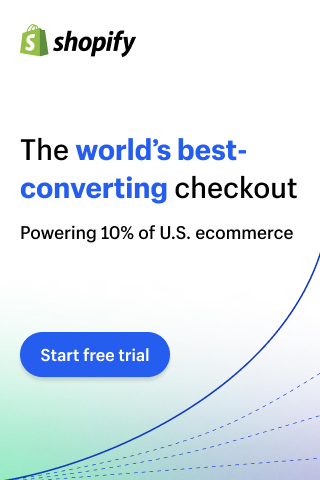What is an FAQ page?
FAQ stands for “frequently asked questions” and an FAQ page is often included on websites to allow questions to be asked and answered in a public forum. An FAQ page is a living, breathing document that should be updated regularly. Every time a customer asks you a question, you need to decide whether it is something that other customers may ask or find interesting and useful to know. You need to make sure that you answer the questions clearly and take advantage of the opportunity to connect with your customers and reflect the personality of your business and brand.
“Frequently asked questions” is a broad topic and you may wish to create separate information pages about some of the more important elements such as making payments, shipping and returns. The information you’re providing on this page needs to be current and reflect the issues customers are having with relevant and supportive responses which address your customers’ queries.
Why should my Ecommerce website have an FAQ page?
Answering customer queries is the main purpose of an FAQ page but it can be so much more than you realise. It can be a powerful yet simple and quick way to bring added benefits to your business in the following ways:
#1 Save you time
A well written and organised FAQ page is the first point of reference for customers to explore. It will help them to find answers to questions that they would otherwise be contacting you about on an individual basis and this takes precious time away from the many other jobs you have to do. If a customer does contact you with an FAQ then you can simply refer them to the page or copy the information quickly into an email.
#2 Build relationships with customers

One of the greatest building blocks to any relationship is the establishment of trust. Customers who can see your attempts to be transparent about addressing queries will consider your business trustworthy. This improves the perception customers have about your brand and also instils confidence, which leads to loyal customers who will return time and time again due to their positive shopping experiences.
#3 Identify you as an expert
An FAQ page is the perfect platform to demonstrate your expertise. This increases the likelihood of a casual visitor converting into a customer, as they are more likely to buy from an established business which they consider legitimate and professional.
FAQ pages can also be used as an integral part of site navigation as each question can be hyper-linked to the relevant product, service or page within your site to redirect your customer to relevant content and solutions.
#5 Improve search engine listings
FAQs are not just good for your visitors, they can also help your rankings within search engine results. This page will include a lot of good content, relevant keywords and information which search engines use to establish the ranking place your website will attain.
#6 Turn negatives into positives

If customers are asking questions that may be negative, you can use this as an opportunity to turn their perceptions around and explain the reasons your company is better. Point out the value of what you’re doing and educate your customers about the features and benefits of your products or services to enable your customers to make informed decisions.
#7 Highlight key information
Every visitor that comes to your site will have found it in a different way. They may have posed a question to their search engine and unwittingly stumbled onto your FAQ page. Once they start reading the answer, they may be intrigued to find out more about what your business can offer. It’s important that you take every opportunity to mention vital information like your key selling points, contact details and how the customer can take further action.
#8 Analyse your site
Checking your visitor data regularly may yield some interesting results. You will be able to see where your visitors came from, how long they stayed on your FAQ page, what interested them and where they went afterwards. By checking the analytics, you can adjust your FAQ page to make it more relevant to your customers and their queries.
How do I create an effective FAQ page?
A well organised and functional FAQ page is paramount and should promote the content on the rest of your website. This sounds easier said than done but with these simple suggestions, you will be able to create an FAQ page filled with relevant content:
Questions
You should use questions asked by actual customers, not questions that you think they should be asking. Look through the emails that customers have sent you in the last few months and use them as a basis for your FAQ page. If you’re a new business then hold an open question time and use the most common questions to get your FAQ page started.
Answers
You should answer questions in simple language without the use of technical terms, jargon and over complicated details. Some customers will find this type of language hard to understand and end up even more confused, which is the last thing you want, so be straightforward and concise in your response.
Use the active voice when writing rather than the passive and don’t forget to check your spelling and grammar. Read through your responses before publishing just to make sure they make sense or have someone else check it for you. Break longer responses into shorter paragraphs or use bulleted lists.
Layout
Organise your FAQ page with similar topics grouped together or use a table of contents which will make the layout easier to navigate. You can make the questions bold or slightly larger and then write the answers in normal text with white space between each question and answer so that it’s easy for your customers to determine where one ends and the next begins.
Images
If possible, use images to provide an example of what you’re talking about. This will add more visual appeal to your page and help to explain your response.
Other considerations
- Ensure your FAQ page has a means for your customers to rate the usefulness of your responses and suggest other questions for you to answer.
- Direct people to your FAQ page throughout your site. If they would like further information, advise them to look in the FAQs as their answer may be there already.
- If you have a lot of FAQs then include a search box to help your customers find what they’re looking for.
Whatever your customers need to know, an FAQ page shows them that you value their time and their concerns and are taking steps to address their issues in a helpful way. This page can determine whether or not you have a happy and satisfied customer, or one that decides to go to one of your competitors, because they’re not getting the answers they need. For a great FAQ page, just remember to keep it real, keep it simple and keep it up to date.
